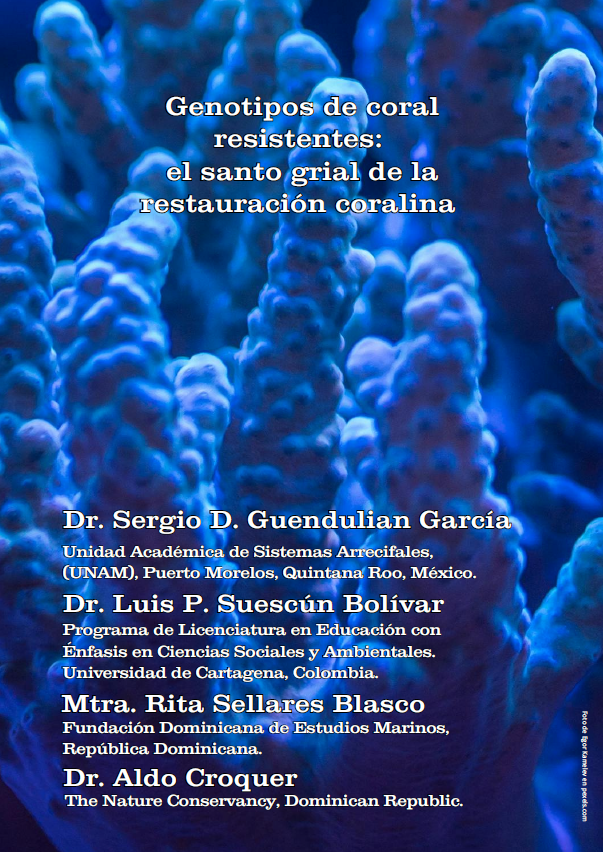Genotipos de coral resistentes
el santo grial de la restauración coralina
Abstract
Coral reefs are one of the most important ecosystems on the planet. However, in recent decades coral reefs have been one of the most affected ecosystems due local pressures, such as poor water quality, overfishing and coastal development, as well as, global pressures, such as global warming, responsible for coral bleaching. These pressures have reduced coral populations worldwide, particularly in the Caribbean region. In this context, coral restoration emerged as a strategy that seeks to compensate for these losses. These strategies have used different tools (including molecular ones) to reproduce and transplant corals to target sites. In recent years, one of the most popular strategies has been the identification of high temperature tolerant coral genotypes. In this work, we describe and discuss the use of molecular biology for the identification of coral genotypes as a strategy to face the changing environment.
Downloads
References
Baums IB (2008) A restoration genetics guide for coral reef conservation. Mol Ecol 17:2796–2811
BAUMS IB, MILLER MW, HELLBERG ME (2005) Regionally isolated populations of an imperiled Caribbean coral, Acropora palmata. Mol Ecol 14:1377–1390
Bayraktarov E, Stewart-Sinclair PJ, Brisbane S, Boström-Einarsson L, Saunders MI, Lovelock CE, Possingham HP, Mumby PJ, Wilson KA (2019) Motivations, success, and cost of coral reef restoration. Restor Ecol 27:981–991
Boström-Einarsson L, Babcock RC, Bayraktarov E, Ceccarelli D, Cook N, Ferse SCA, Hancock B, Harrison P, Hein M, Shaver E, Smith A, Suggett D, Stewart-Sinclair PJ, Vardi T, McLeod IM (2020) Coral restoration – A systematic review of current methods, successes, failures and future directions. PLoS One 15:e0226631
Drury C, Greer JB, Baums I, Gintert B, Lirman D (2019) Clonal diversity impacts coral cover in Acropora cervicornisthickets: Potential relationships between density, growth, and polymorphisms. Ecol Evol 9:4518–4531
Van Oppen MJH, Gates RD (2006) Conservation genetics and the resilience of reef-building corals. Mol Ecol 15:3863–83
West JM, Salm R V. (2003) Resistance and Resilience to Coral Bleaching: Implications for Coral Reef Conservation and Management. Conservation Biology 17:956–967






